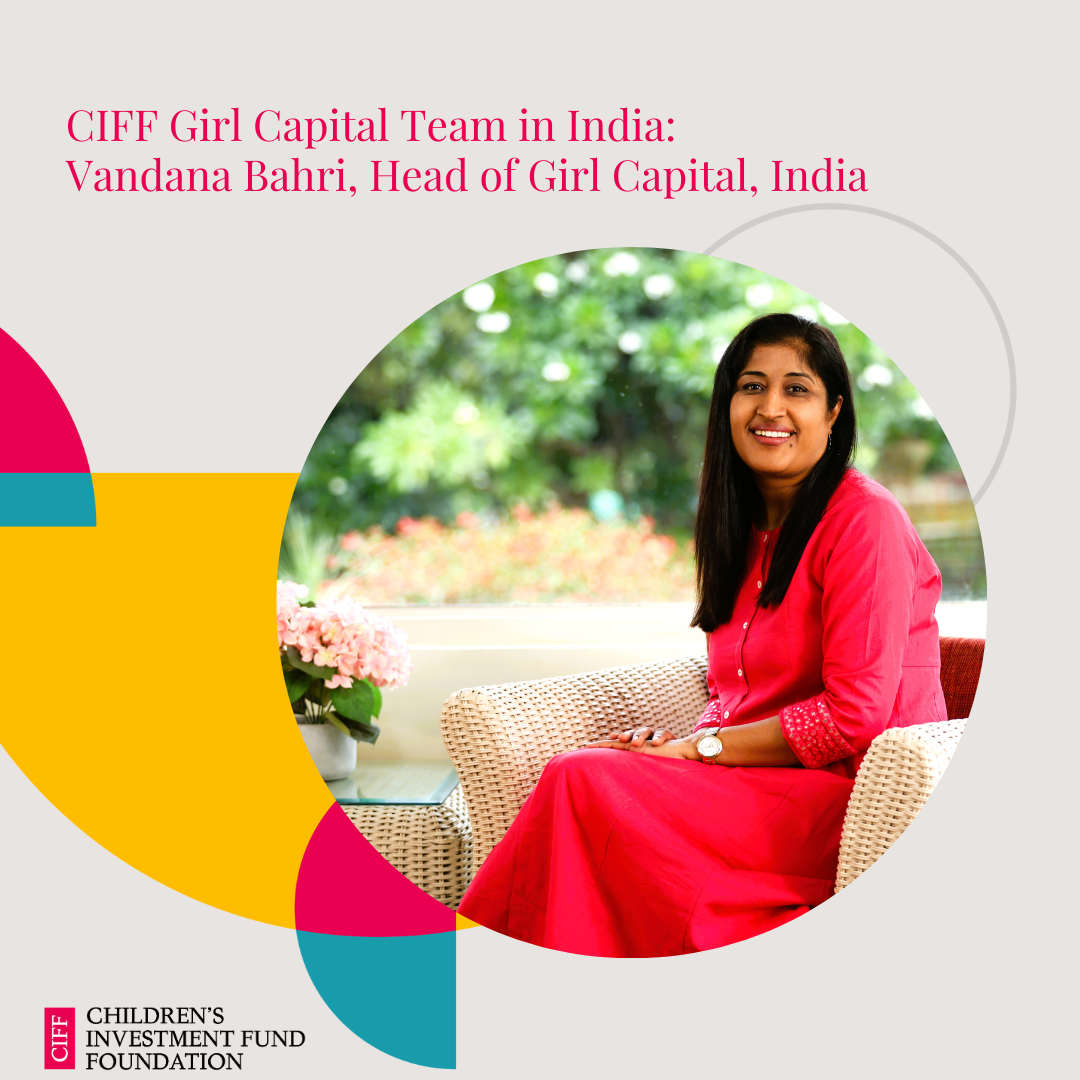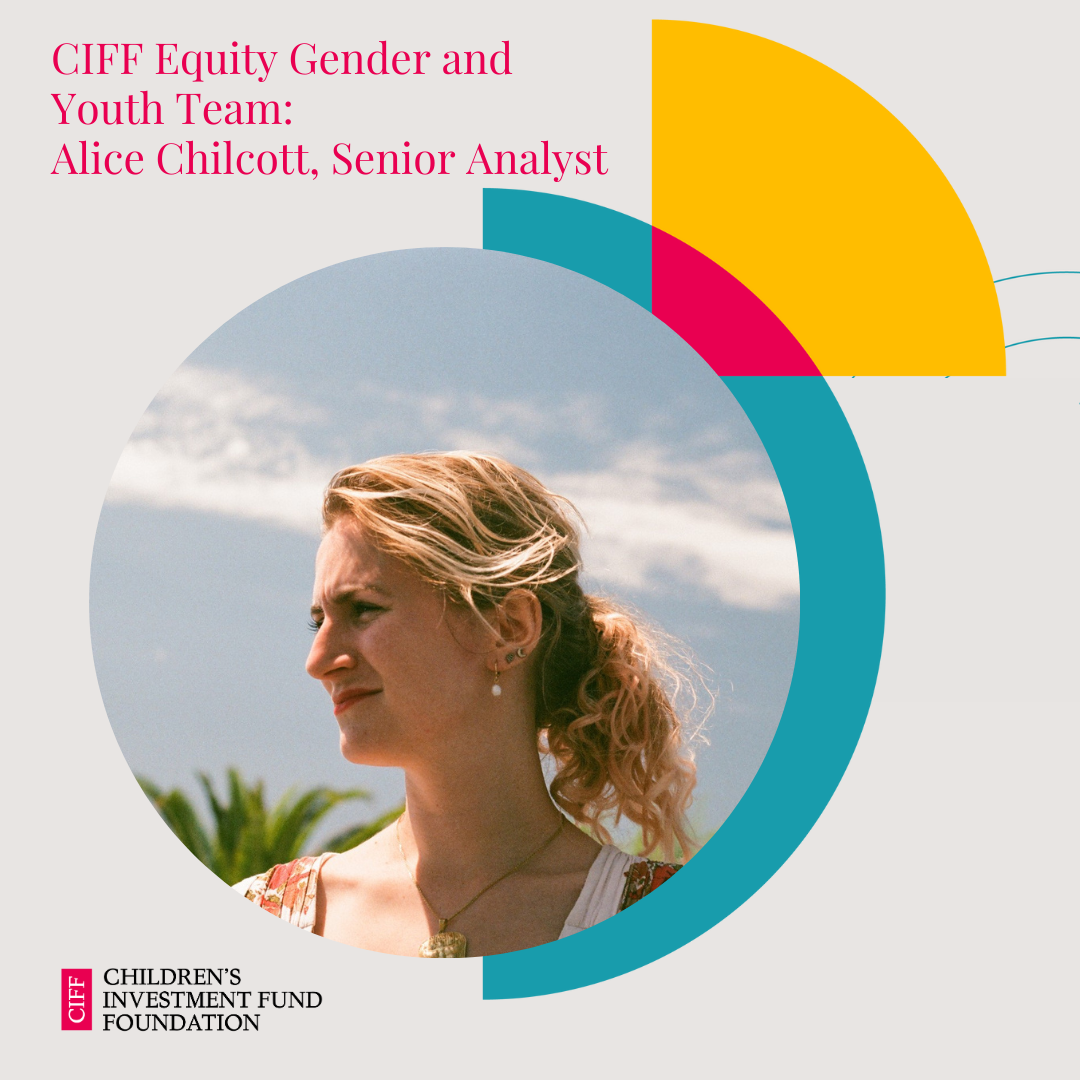Investing in Girls to Accelerate Progress for Women
For International Women’s Day 2024, we reflect on the impact of long-term partnerships with organisations that are investing in girls, and supporting their development to women.
‘Invest in women to accelerate progress’ is UN Women’s call for International Women’s Day this year. To achieve gender equality and support women in a sustainable and impactful way, investment must start before they are women. It starts with funding for girls in a way that supports them long-term, throughout their development as adolescents and through to women.
At CIFF, our approach to addressing society’s most pressing and intersecting challenges is to tackle their root causes, and implementing solutions through collaboration. Our colleagues working towards women’s empowerment and sexual, reproductive health and rights invest in ideas and programmes across almost 100 partners globally, whose work critically examines inequalities, gender roles, power dynamics, and ultimately promotes the relative position of women and girls. CIFF is also a proud partner to Generation Equality, having committed $500 million during the Paris 2021 Summit across two Action Coalitions, including $460 million for Bodily Autonomy and Sexual and Reproductive Health and Rights (SRHR) and $40 million for Economic Justice and Rights.
What has investing in girls and women looked like in practice over the last year? What progress and impact has been made across partners and around the world? And how, with continued support, collaboration and resources can we ensure women and girls have their fundamental rights? We asked the experts across the team to share their reflections and partnership highlights!

Partner highlight: Equipping girls to protect themselves against Gender Based Violence (GBV) with Ujamaa Africa
Starting from a young age is critical in improving the life outcomes of girls. Ujamaa Africa works with girls to help build well educated women who are able to protect themselves when they need to. Their training includes proven intervention models that raise awareness on the dangers of GBV and teaches practical physical defense skills to girls.
The success of Ujamaa Africa’s Empowerment Transformation Training is clear as it prepares to expand to a further 11 counties in Kenya. The Girl Capital Team in Africa looks to continue investing in girls’ access to the forms of education that protect girls and are fundamental for them to achieve their full potential as women.

Partner highlight: Breaking the cycle of female unemployment with GLOW
When girls are disproportionately affected in their access to secondary education and skill courses, they then face barriers in their next stage of life and getting into the job market which leads to multi-generational socio-economic issues. Vandana reflects on the successes of multiple long-term programmes that are working to address the Female Labour Participation Rate (FLPR) across the country and assisting the government’s vision to achieve women-led development.
Manzil has connected more than 10,000 rural, school drop-out girls to first generation members in formal employment.
Growing Livelihood Opportunities for Women (GLOW) will be driving over one million women from low-income families into employment, changing the gender-diversity of the Indian workforce.
Other programmes in our Girl Capital strategy include Buniyaad, Skill Impact Bond and recently launched Digital Girls Hub.
Through these programmes that focus on shifting mindsets and demonstrating the economic benefits of hiring women, the India Girl Capital team expects millions more jobs to open up, ending this perpetual cycle between education and employability, and driving positive outcomes for girls, communities, and the country.

Partner highlight: Evidencing the Impact of Young Feminist Movements with the Population Council
When resources and power are shifted to girls and young women, they are able to shape and influence the conditions of their lives – across policy, programmes and social change – to reflect their own needs. Women- and girl-led grassroots organisations are the backbone of gender equality advocacy and have driven positive outcomes across reproductive and education rights, and campaigns to end child marriage, female genital mutilation and the climate crisis.
Population Council Kenya and Mexico are working with young feminists to build evidence on impact of youth- and girl-led activism, and to gain a greater understanding of the unique ways in which young feminist organisations achieve that impact.. This evidence will prove invaluable to ensure movements receive generous and sustainable investment in the future.
The year ahead is set to be turbulent as many women and girls will likely face changes to their gender rights and autonomy. CIFF’s focus remains. We continue to tackle the root causes of gender equality, through long-term partnerships and investing in girls to accelerate progress for women.